Marsha P Johnson, Anne Lister and 6 other inspiring queer icons kids should be taught about in school
The LGBT+ community is made up of a diverse group of people from all over the world, and their stories are often overlooked in history books.
PinkNews spoke to ambassadors and workers from LGBT+ youth charity Just Like Us about the historical figures they wished they had learned about in school, from the past to the present.
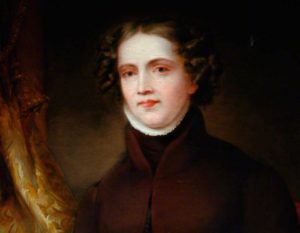
Anne Lister, English landowner and diarist
Rita Leci, 21, said she learned about Anne Lister by watching the historical BBC drama Gentleman Jack. Lister is often heralded as the “first modern lesbian” as she took charge of her family’s estate and lived openly as a lesbian with her partner.
“I’ve always found her story really inspirational as she chose to go against society’s expectations by becoming a businesswoman and by choosing to be happy with someone she loves in a time when this was seriously frowned upon,” Levis said.
She explained Lister’s story “makes me realise that we are really lucky in a lot of ways, as women nowadays in the UK, to be able to pursue whatever career we like and to love and live with whomever we choose”.
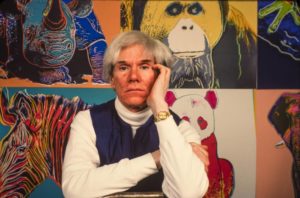
Andy Warhol, American artist, film director and producer
Ramses, 25, said it took “me lots of additional reading” to discover Andy Warhol’s sexuality, despite the artist being mentioned during his modern art studies. Warhol was one of the first American artists to be gay, and his “Factory” – his studio – was a safe space for LGBT+ people, including transwomen.
“Learning about him in school would have shown me you could be LGBT+ and still be successful and famous, even in a period when discrimination was common and violent,” Ramses said. “His early drawings, movies, photographs and the community he created are a testament to the gay rights movement and an incredible contribution to LGBT+ history worldwide.”
As a trans gay man, Ramses shared that the way Warhol shaped the LGBT+ community “inspired me to get in touch with my own, creating a safe space for young LGBT+ people”.SPONSORED CONTENT

Top 3 Health Screenings Not to Miss
Even if you consider yourself to be in good health, it’s important to keep up with…
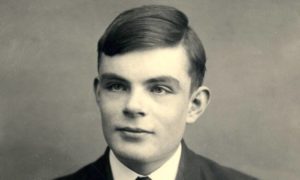
Alan Turing, English mathematician, computer scientist and logician
Both Roan Maclean, 23, and Daniel Mayor, 22, wished they had learned more about mathematician and World War II historical figure Alan Turing. Turing was a key member of the Allied forces cracking the Enigma Code, and he has been credited as being the father of modern computing.
“To be taught about LGBT+ history, especially ones that are at the top of their field and doing groundbreaking at the time work would have been amazing,” Mclean said. “It would have shown younger me that anything is possible.”
Mayor said he had learned about Turing’s contributions to modern computing, but nothing was said about him being gay or the way he was persecuted because of his sexuality. Turing was prosecuted in 1952 for homosexual acts, and he died by suicide in 1954.
Mayor said it would have been “very powerful” if he knew that an LGBT+ person like Turing had such an “amazing impact on the world”.
Jack Bee Garland, author, journalist and nurse
Like many people, Emma Fay, director of education at Just Like Us, admitted to having not realised that “trans people had existed throughout history”. Fay said it was a “real awakening” to “discover the people out there who are bringing trans history to light and busting the often-repeated myth that we don’t know anything about it”.
“In particular, I wish I’d known about Jack Bee Garland, who I learned about for the first time recently while reading CN Lester’s book Trans Like Me,” Fay said. “That book has had a huge influence on how I understand gender and introduced me to loads of interesting trans people throughout time.”
Jack Bee Garland was born in San Francisco in 1869 and lived as a male in the city’s Tenderloin District. Garland adopted the male identity of Beebe Beam and accompanied the US Army to the Philippines in 1899 to participate in the Philippine War. When Garland became sick and was “found out”, his fellow soldiers were incredible allies, chipping in money to help him, helping him escape and even breaking him out of prison.
“It’s such an amazing piece of history that I wish I’d learned about at school,” Fay said.
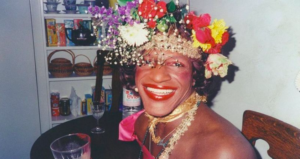
Marsha P Johnson, American queer liberation activist
Jemima Churchhouse, 23, said she would have liked to have learned about Marsha P Johnson at school. Johnson was an outspoken, revolutionary Black trans woman who co-founded the Street Transvestite Action Revolutionaries (STAR), an organisation that provided housing to homeless LGBT+ youth and sex workers in New York in the 1970s.
Johnson was a popular figure in New York City’s gay art scene, even modelling for Andy Warhol, and she was one of the prominent figures in the Stonewall uprising of 1969. As trans rights are hotly debated in the UK and worldwide, Churchhouse said it was essential “that we remember that trans people such as Marsha have always fought alongside LGB+ people for our rights”.
“I wish I’d been taught that trans women, and especially trans women of colour, have always been at the forefront of the Gay Liberation movement,” Churchhouse said. “I’m so grateful to all of the LGBT+ people who came before me and have helped allow me to live freely and authentically.”
DJ Ritu, radio presenter and activist
Taz Rasul, director of volunteering at Just Like Us, said she would have liked to have learned about DJ Rita as a teenager. She explained: “15-year-old me was fine with my sexuality, but embarrassed about being Asian. Asians weren’t cool or relevant.”
Rasul said learning about a broadcaster and activist like DJ Ritu “might have forced open my view of who Asians are a little earlier in my life”. Ritu is a British Asian lesbian who helped run the UK’s first South Asian lesbian and gay group in the 1980s. Rasul said: “If my school had made LGBT+ people of every colour visible to me, I might have embraced every part of myself with pride.”
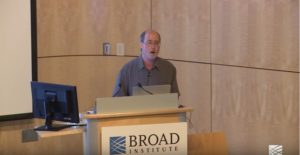
Dr Ben Barres, American neurobiologist
Dr Ben Barres was a neurobiologist at Standford University, and he became the first openly transgender scientist in the National Academy of Scientists in 2013. As a trans man, Krystof, 22, said he found “comfort and confidence” in Dr Barres story, “knowing that he has not only survived and thrived”.
Dr Barres transitioned in 1997, in the middle of his career, and he was appointed the chair of neurobiology at Stanford’s school of medicine. Krystof said Dr Barre’s story and career made the “idea of coming out” less scary because “I knew there was someone like me before”.
“It is important to see representation and for schools to teach about LGBT+ figures in all fields,” Krystof said.
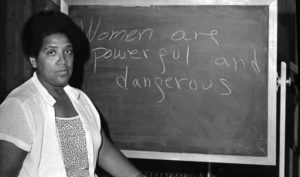
Audre Lorde, American writer, feminist and civil rights activist
More from PinkNews
Stars you didn’t know are LGBT+Celebs you didn’t know have an LGBT siblingThe stars who went gay for pay
Dominic Arnall, chief executive of Just Like Us, said he had first read Audre Lorde‘s collection of essays Sister Outsider while he was working on a project on supporting LGBT+ rights activists in Russia. He said he became “completely enamoured by her writing style”.
“She wrote both with a profound wisdom and an innate understanding of the human condition and the systems that we operate in,” Arnall said. “Lorde had an ability to see a particular situation from many angles at the same time, drawing you to question what you already knew, including the systems by which you knew it.”
The self-described “Black, lesbian, mother, warrior poet” is best known for writings reflecting her hatred of racial and sexual prejudice. Lorde dedicated her life and creative works to confronting and addressing social injustices including racism, homophobia, sexism, classism and capitalism.
Arnall said he’s sent copies of Sister Outsiders to colleagues, friends and even his mother. He added: “It was a permanent fixture in my bag, in one instance finishing it only to start back at the beginning again, needing to ensure some detail had not escaped my memory.”
School Diversity Week is the annual celebration of LGBT+ inclusion in education run by charity Just Like Us. Schools and colleges in the UK can sign up now to take part ahead of 21 – 25 June – last year schools representing 1.9 million young people took part. Just Like Us also runs school talks and provides free home learning resources for parents.